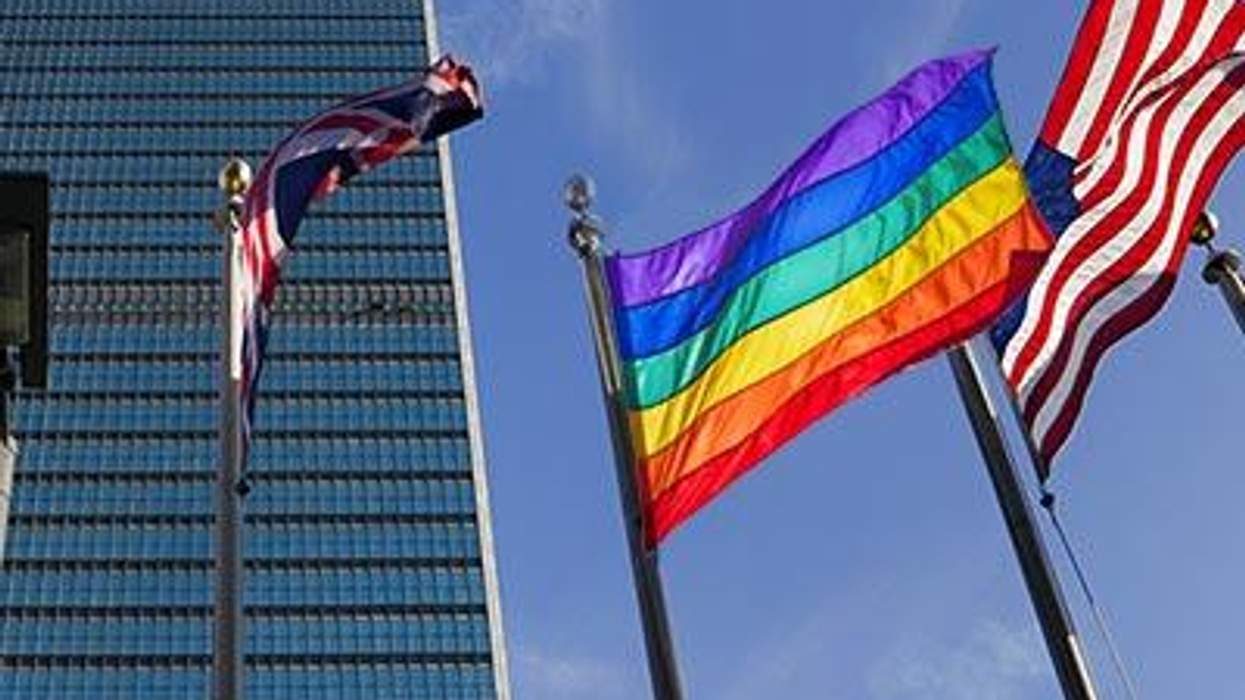In a historic gathering Monday, the United Nations held its first-ever meeting of the Security Council to address the human rights of LGBT people. The briefing, convened and chaired by U.S Ambassador to the United Nations Samantha Power and her Chilean counterpart, Ambassador Cristian Barros Melet, and addressed by the U.N. deputy secretary-general, heard firsthand testimony from an Iraqi and a Syrian refugee about the shocking abuse and violence being perpetrated against LGBT people in areas controlled by ISIS.
In many ways, this event marks a turning point -- a watershed moment for the LGBT movement. The seriousness of this moment, and the attention paid by U.N. ambassadors and member states is remarkable and unprecedented. Though more action will be needed, this meeting was an important first step.
Speaking to a packed room that included an extraordinary number of U.N. member states -- close to a dozen U.N. ambassadors and high-ranking representatives from more than 20 countries as well as the European Union and the Nordic countries -- the witnesses (one of whom appeared by phone to protect his identity) shared their experiences as LGBT people in their home countries. Participants sat in attentive silence as they heard the shocking details of the men's experiences being beaten, imprisoned, and threatened with death as well as their terror when they learned about the fate of gay men they knew, or saw the widely publicized videos of ISIS executing allegedly gay men.
The witnesses emphasized that widespread persecution and hatred of LGBT people existed long before the current conflict in Syria and the rise of ISIS, and that the brutality practiced by ISIS is often supported by society at large. Subhi Nahas, a Syrian refugee who has found safe haven in the United States, described how he was persecuted in Syria by the police and by his community, and "Adnan," an Iraqi who is still a refugee outside Iraq, talked about how his family turned against him when he told them he was gay and threw him out of the house. "In my society, being gay means death; and when ISIS kills gay men, they are celebrated," he said.
In calling for an end to these abuses, virtually every speaker repeated the language of Article 1 of the Universal Declaration of Human Rights, "All human beings are born free and equal in dignity and rights," stressing that those who kill or abuse LGBT people simply for who they are should be held accountable for their crimes. As the representative from South Korea said, "No one gets to decide who is entitled to human rights and who is not."
To have so many countries, represented at the highest levels, gathering at the United Nations to discuss the human rights of LGBT people, would have been unthinkable until quite recently. More than one participant pointed out until five years ago, even the International Gay and Lesbian Human Rights Commission, the organization that helped to convene the hearing, was routinely denied the necessary credentials to officially participate in U.N. proceedings.
Yet on Monday, in those very halls, nine out of 15 countries of the Security Council as well as dozens of others including Colombia, Japan, Brazil, Australia, Israel, Sweden, New Zealand, Lithuania, Jordan, the Netherlands, Uruguay, Germany, and more, showed up to talk about the universality of human rights. Notable in the group were Jordan, whose representative addressed the gathering in Arabic, and countries such as Turkey and Georgia, which aligned themselves with the statement of the European Union. Unfortunately, no representatives spoke from any African country, the Caribbean, Russia, or China, among others -- many of which have anti-LGBT records.
Ambassador Power, speaking to the press after the briefing, acknowledged that simply holding the event would not stop the brutality of ISIS or put an end to hatred and persecution of LGBT people in these countries. But she did note its significance and the progress that has been made in a remarkably short time. Until recently, only rarely have LGBT rights been put on the table as a matter of national security -- the most notable recent example being when President Obama in his 2015 State of the Union address said that protecting vulnerable populations, including LGBT people will "ultimately make us safer."
And this briefing at the U.N. may have done the same thing at a global level, by connecting LGBT rights to global security issues and demonstrating the devastating impact their violation has on individuals, societies and global peace and stability. We hope that this briefing on the extreme violence of ISIS will have the effect of stirring more countries to join the ever-growing international consensus that every person, no matter who they are or who they love, is owed their basic dignity and rights.
JEAN FREEDBERG is the deputy director of HRC Global.




































































Charlie Kirk DID say stoning gay people was the 'perfect law' — and these other heinous quotes